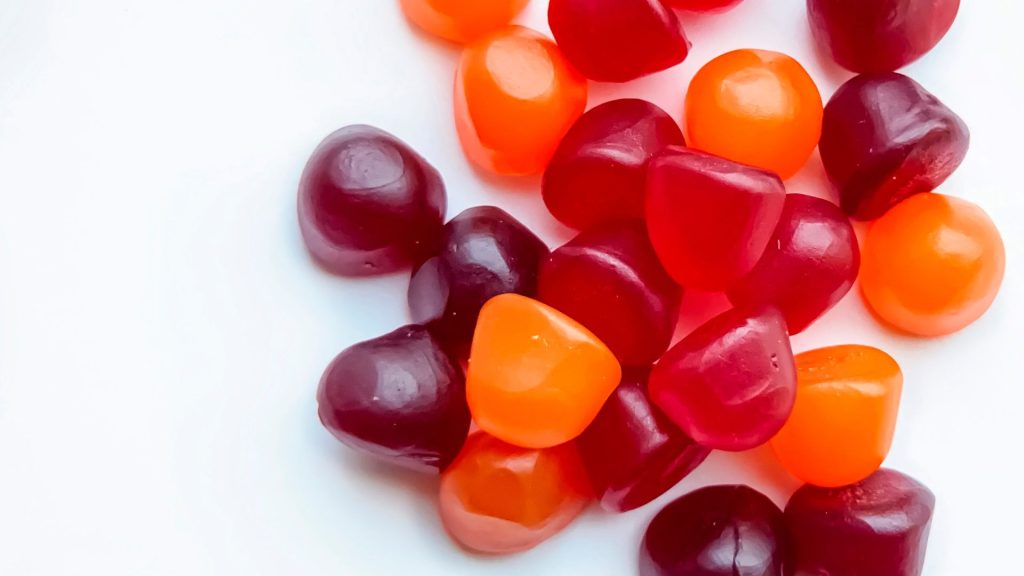
Gummy vitamins can be an ideal way to develop a regular vitamin habit or address specific deficiencies like calcium or zinc deficiencies. They’re also an excellent solution for anyone struggling to swallow pills.
But be wary: many gummies contain too much sugar! Our top-rated choices do not use artificial sweeteners or sugar alcohols and generally have less than 8 grams of added sugar per serving.
They’re easier to take
Gummies make for an easier alternative than pills for chewing and swallowing, with no unpleasant odor like other vitamins do. Gummies may be especially beneficial to kids who find taking pills difficult or don’t like their taste of traditional multivitamins.
Vitamin gummies are made with ingredients like glucose syrup, sugar, natural flavors and oils from plants like vegetable juice concentrates, gelatin and pectin – some with single nutrients included, while others combine multiple nutrients into single gummies or multivitamin gummies.
However, despite their appeal and popularity, gummy vitamins should be chosen with care. One issue to consider when purchasing these sweet snacks is whether they contain extra additives like food coloring, sugar alcohols (erythritol, mannitol and isomalt) or citric acid which could potentially lead to undesirable side effects like gastrointestinal issues, headaches, dizziness or vomiting if taken too often (see table for upper limits for each nutrient).
They help establish the “vitamin habit”
Gummy vitamins are easier for children and adults alike to swallow than pills, making them an excellent way to establish the habit. Plus, their variety of shapes, sizes and flavors caters directly to children’s tastes!
However, gummy vitamins may add excess sugar to one’s diet and contribute to obesity, high blood sugar levels and tooth decay. Many gummy vitamins contain added sugars such as sucrose, glucose syrup and fructose that could result in overconsumption by children consuming too many sweet treats.
Gummies may experience rapid strength loss if exposed to heat or light, with limited nutritional options and no tailored stack capabilities compared with pills. Furthermore, excessive consumption may impede absorption of essential minerals such as iron and zinc into your system if taken in excess. Furthermore, they may cause unpleasant digestive issues for some individuals while being more expensive than traditional multivitamin pills.
They fill in nutritional gaps
Vitamin gummies may make taking vitamins easier for those who struggle to swallow pills and capsules, and taste great too! Plus they may help establish the habit, increasing chances of remembering to take their daily vitamins without forgetting a day!
But, many gummies contain added sugar – too much can contribute to weight gain and dental issues, according to the 2020-2025 Dietary Guidelines for Americans. They suggest no more than 25 grams for women per day and 36 for men per day; many gummies contain 2-8 grams.
Some gummies don’t contain any added sugars. Gummies made with natural ingredients like berries, ginger, turmeric and other fruits and vegetables such as kale are more easily absorbed by your body than synthetic nutrients. Look for independently tested and clinically researched nutrients as well as those without artificial flavors or colors – plus gluten-free options when choosing your treats!
They’re sugar-free
Vitamin gummies may not be an ideal way to make healthful nutrients more appealing for picky kids, but they can provide a convenient and more palatable way of supplementing their diet with vitality-promoting nutrients. Gummy vitamins come in a variety of shapes, sizes and flavors which make them even more engaging to young minds.
However, one drawback of gummy vitamins is their added sugars content, which poses a problem when taken in accordance with American Heart Association recommendations for women (25 grams daily and 36 for men) of added sugar intake; most gummy vitamins offer 2-8 grams in one serving.
Gummy vitamins often use sugar substitutes that may trigger digestive problems or have laxative properties. People who are sensitive to sorbitol or other sugar alcohols should avoid them.


